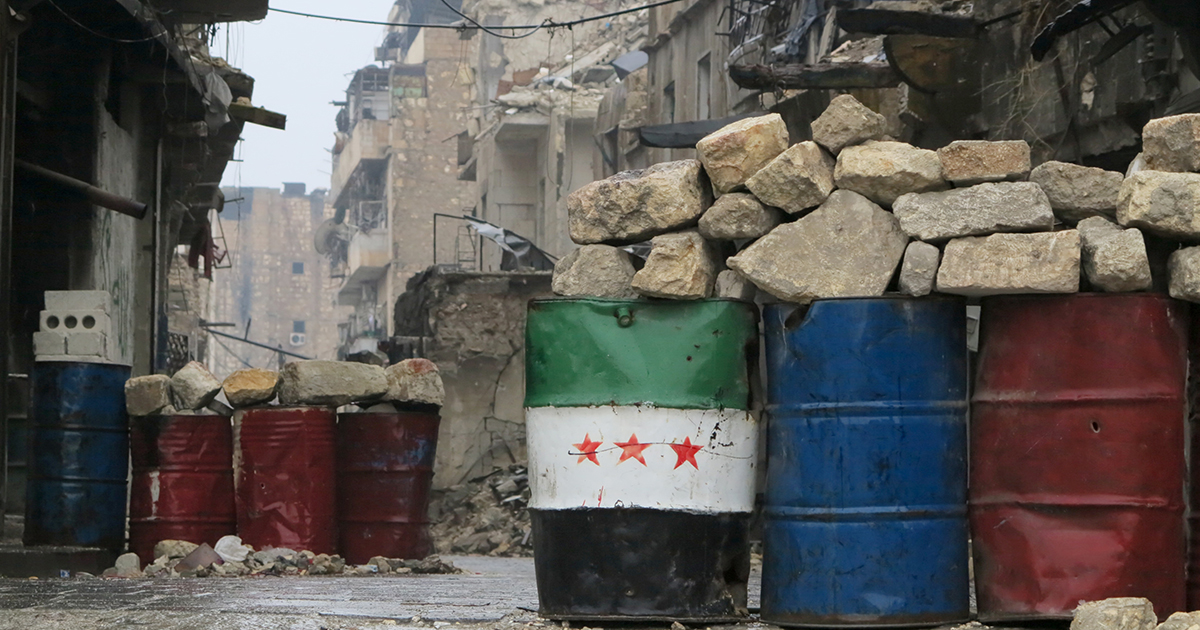Trump Team's Comments on Syria Raise Major Questions

By:
Will the United States go to war in Syria?
For the second time in the last five years, Americans are being forced to debate the appropriate response to a Sarin gas attack reportedly carried out by the government of Syrian President Bashar al-Assad.
Back in 2013, during the deliberations that followed reports of the first major Sarin attack by the Syrian government near the capital of Damascus, then-reality star Donald Trump urged President Barack Obama to avoid intervening militarily in Syria.
Trump also mocked the notion that the United States would attack the Assad regime over its use of chemical weapons just because it crossed a "red-line" created by President Obama.
It wasn't until one year later the United States would begin a less debated bombing campaign in Syria — not against Assad, but rather against ISIS fighters who were occupying territory in the country.
Now, Trump is responsible for leading the United States' response to another reported use of Sarin gas by Assad's forces against Syrian civilians, this time in the province of Idlib.
Though as recently as two days ago Trump's Secretary of State Rex Tillerson asserted that Assad's future must be left to the Syrian people, his tone changed noticeably on Thursday afternoon when asked how the United States and the international community should respond to the attack.
When asked by a reporter if the United States was prepared to lead an effort to get Assad out of power, Tillerson said, "those steps are already underway."
On Thursday afternoon, Trump himself cryptically hinted the need for some sort of change in Syria.
So, what's next?
To understand the United States' next move in Syria, it's important to understand what it's already doing in Syria.
A United States-led coalition has dropped thousands of bombs in Syria since August of 2014, never intentionally targeting Assad's soldiers. Instead, they've been waging a protracted war against ISIS and other extremists, who have taken advantage of the chaos created by the Syrian conflict to claim territory in the country. The U.S. Department of Defense has also provided funding to joint Arab-Kurdish militias that form the Syrian Democratic Forces, which is fighting ISIS on the ground.
 Associated Press - apimages.com
Associated Press - apimages.com
The U.S. has also played a role in fighting Assad indirectly, with the Central Intelligence Agency providing some funding to select rebel groups, along with small arms and anti-tank missiles — while blocking shipments of anti-aircraft weapons, ensuring the Syrian government's air supremacy. In short, the U.S. is already intervening in Syria. The question many are asking is if Trump will now prioritize a full-fledged war against Assad rather than continue its parallel war on terror.
If Trump wants to remove Assad, how would that actually happen?
James Gelvin, a professor of History of the University of California, Los Angles, says that, for starters, there's no chance of a diplomatic solution to the conflict.
"None. Zero," Gelvin told ATTN: during a phone interview on Thursday afternoon.
Assad's forces, with Russian support, are winning the war, Gelvin said, and have no incentive to give up now.
"The Assad regime has pushed back the rebels so much that there’s no reason they would sit down and talk to the opposition," Gelvin said. "The only thing they would discuss is terms of the opposition's surrender."
 AP Photos - apimages.com
AP Photos - apimages.com
Gelvin also thinks it's highly unlikely Trump would directly attack Assad or his family, as that would create a power vacuum that would most likely be filled by jihadist groups that are also accused of human rights violations.
"If we decapitate the Syrian regime, we get rid of the extended family, the only viable opposition groups are despicable. We cannot live with them and the neighborhood cannot live with them," Gelvin said.
What Trump could potentially pursue — though its unlikely — is a strategy of attempting to degrade Assad's military capabilities, thus forcing him back into diplomatic discussions.
"Now the Syrian government side is winning, the only way they come to the table is if they start losing again," Gelvin said. "But, that’s a hard call to make."
Nothing we've mentioned so far will stop the violence in Syria in the short term. What can be done help those who are suffering?
According to the United Nations Office for the Coordination of Humanitarian Affairs, donors are falling badly short on their promises of funding aid. The U.N.'s website notes that of $3.4 billion in pledged donations, only $500 million has actually been delivered.
Micah Zenko, a Senior Fellow at the Council on Foreign Relations, noted the shortfall in a Twitter thread on Wednesday afternoon.
As Human Rights Watch reported in March, Trump's 2018 budget would eliminate funding to the State Department's Emergency Refugee and Migration Assistance account, which has been used in the past to support Syrian refugees who've fled to nearby countries.
